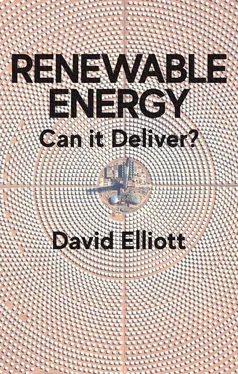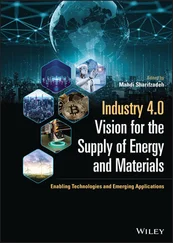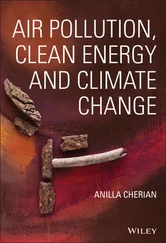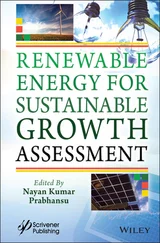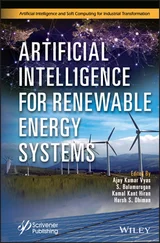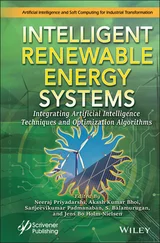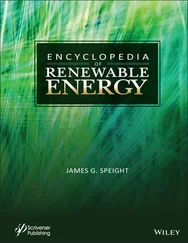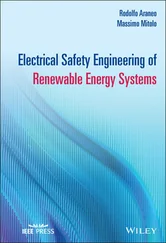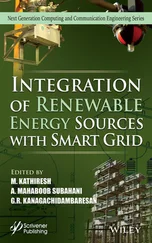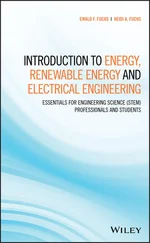Box 1.3 Energy and power units
The terms ‘power’ and ‘energy’ are sometimes used interchangeably, which can be confusing. In this book, ‘power’ is used to mean electric power, whereas ‘energy’ covers all sources/end uses (power, heat and transport), not just electricity, although of course some electricity is used for heating and for transport.
In physics, the definition of power is more specific. It is a measure of the ability (or capacity) of a device to do work, rendered in watts and multiples of watts: 1,000 watts is a kilowatt (kW), 1,000 kW is a megawatt (MW), 1,000 MW is a gigawatt (GW), 1,000 GW is a terawatt (TW). Energy also has a more specific meaning in physics. Strictly, it is always conserved and cannot be ‘generated’ or ‘consumed’, only converted from one form to another. But we still commonly talk of energy generation and consumption, and the amount of energy converted (generated or consumed) is measured as power × time, i.e. the power of the device multiplied by how long it is run for, so it is ‘kilowatt hours’ (kWh) and multiples, MWh, GWh and TWh.
There will always be losses in energy conversion from one form to another and so, for a generation system, the finally available end-use energy will be less than the so-called primary energy inputs (for example, the energy in the fuel used in fossil-fuel-fired plants). The actual energy output of a generation plant will also usually be less than the theoretical full output possible for the plant, especially for systems using variable renewable sources, since they cannot deliver their full theoretically possible output all the time. ‘Capacity factors’ (also called ‘load factors’) are cited for the percentage of the theoretical maximum output capacity that is actually available annually to meet demand loads.
There are some issues with the way renewables are handled in energy analysis, since renewables like wind and solar do not use fuel. To produce a figure for primary energy that is compatible with those used for fossil fuel plans, the output from the renewable plant is sometime ‘grossed up’ by a factor of around three, to reflect the amount of primary fossil energy that would have to be used (given the large losses in fossil energy conversion) to produce the same output. The same is sometimes done with nuclear plants and biomass plants. It might be argued that it would better just to compare final energy outputs in each case. But, done that way round, to get the same output as a wind or solar plant a fossil plant could be depicted as having, nominally, to consume around three times more primary fuel (Sauar 2017).
Although, as I will be exploring, there can be disagreements about the likely technical and economic viability of new energy technologies, the wider climate change and environmental aspects and issues are sometimes even more controversial. For example, there are sometimes fierce debates concerning the likely social and environmental impacts of the combustion of fossil fuel and energy use, and also over how they might be avoided or lessened. However, the basic emissions situation is relatively clear. Box 1.4 summarizes the current global pattern of energy use, in very simplified terms, and also, in rough outline, the resultant global carbon emissions. They are both still expanding.
Box 1.4 Energy end uses and emissions
In terms of what the various energy sources are used for, put very simply, although it varies significantly around the world, the total primary energy that is used for (electric) power generation, for heating and for transport is very roughly split in equal amounts amongst these three end uses, but that pattern is changing with, in some cases, transport taking more.
In terms of carbon dioxide gas emissions from fossil fuel use, total emissions from direct energy production/use have stabilized globally in recent years but rose slightly (by 1.7%) in 2018. Although it varies round the world, there are, very roughly, equal proportions of global greenhouse gas emissions from energy generation (heat and power), transport, industry and agriculture (IEA 2019a). The historical record of emissions illustrates how emissions rose as countries industrialized, led initially by the United Kingdom and then the United States but with China now in the lead (GCP 2020).
For details of energy use and some of the resultant impacts, the UK situation is reported in the annual Digest of UK Energy Statistics (DUKES 2019), the Energy Information Administration produces data on the US situation (EIA 2019), while BP publishes annual global energy outlooks (BP 2019), as does the IEA (IEA 2019a). The IEA’s latest data suggest that global emissions have stabilized again, in part due to reductions in coal use in the United States and the EU (IEA 2020).
The precise extent and timing of the likely social and environmental impacts from the combustion of fossil fuel may still be the subject of some debate, but few doubt that they will continue to grow and cause serious and worsening problems unless major changes are made. Indeed, some fear that, otherwise, the outcome could be catastrophic. Whatever we now do to slow emissions, the impacts from past emissions will have to be faced, in some cases as a matter of urgency. We can also try to adapt in advance to climate change to some extent via ameliorative measures, such as enhanced sea-rise protection in flood-prone areas.
However, if nothing is done to halt or reduce emissions, the impacts will get worse, making adaptation progressively harder, more expensive and in the end futile. It is the same for carbon dioxide removal from the atmosphere: at best, it can deal with some old emissions but more likely, as with post-combustion carbon capture and storage of CO 2from power plants, it may just be used to compensate for continued fossil fuel use. Carbon capture nevertheless might reduce the associated climate impacts, although there will be limits to the storage space for CO 2. As with adaptation, it is not a long-term answer to climate change and the impacts of continued fossil fuel use. Avoiding emissions at source is a more fundamental, effective and sustainable approach (Schumacher 2019a).
My aim in this book is to ask, how far can the use of renewable energy sources allow us to move in that direction? Can they help us to cut emissions substantially or even entirely , and, if so, when and at what cost?
2 The Renewable Transition
To set the scene, this chapter looks in outline at the key renewable options and systems, their potentials, costs and problems. It reviews the basic issues of choice at stake and also looks at how rapidly the options might be deployed.
Natural energy flows can be tapped and converted into mechanical power and then electrical energy, as in hydro projects, and by wind-, wave- and tide-driven devices. In addition, there are systems which use natural sources of heat, either directly for heating or indirectly to generate electrical energy, and finally there are devices which convert solar energy directly into electricity, using photovoltaic cells (PV solar).
I have explored these options in some detail in a recent book (Elliott 2019a), so here I will simply present a brief summary of the state of play. The most developed option so far is hydroelectric power, with around 1.2 terawatts (TW) of capacity installed globally, supplying about 16% of the world’s electricity, producing it relatively cheaply. Indeed, although they are expensive to build, once in place hydro plants often offer some of the lowest-cost electricity on the grid in many countries.
Читать дальше
